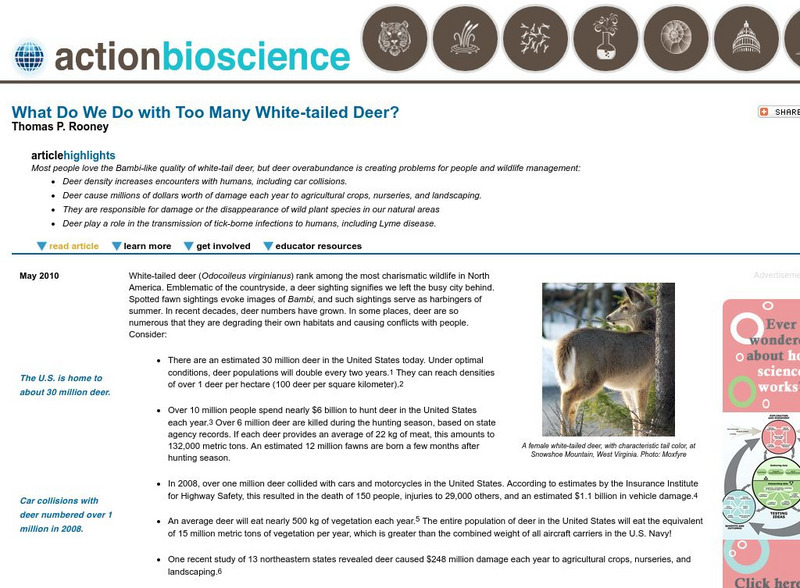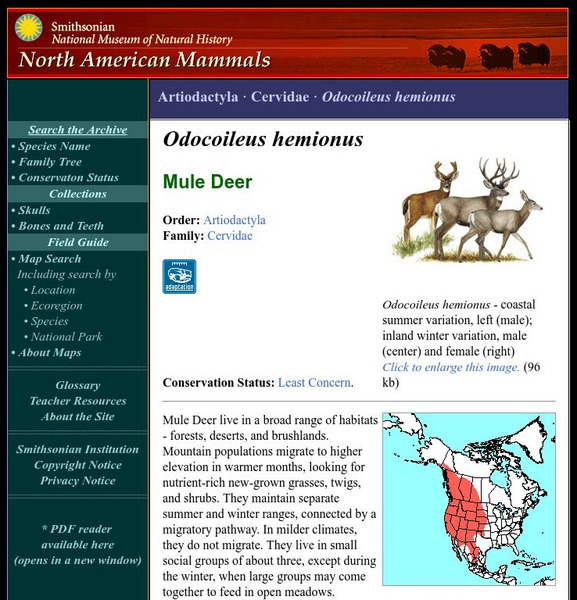Hi, what do you want to do?
American Institute of Biological Sciences
Action Bioscience: What Do We Do With Too Many White Tailed Deer?
The rise in deer population is putting the animals in the way of harm from increased car accidents, damage to agricultural businesses as well as wildlife plant species, and ticks that cause things like Lyme disease. Take a look at...
PBS
Nh Pbs: Wildlife Journal Jr: White Tails in Winter
Take a look at how the white-tail survives in winter and how feeding deer in winter can cause serious damage. Learn white-tail deer characteristics and discuss steps scientists are taking to determine human feeding effects.
Smithsonian Institution
Smithsonian Learning Lab: What's Your Problem? A Look at the Environment in Your Own Backyard
The Smithsonian provides a guide that classrooms can use to explore the environment in their own backyard. For example, a second-grade class in Colorado interviewed people in their community to inquire about the state of the local...
Smithsonian Institution
National Museum of Natural History: American Mammals: Mule Deer
Mule Deer live in a broad range of habitats - forests, deserts, and brushlands. Mountain populations migrate to higher elevation in warmer months, looking for nutrient-rich new-grown grasses, twigs, and shrubs. Learn more about the...
Other
Chronic Wasting Disease Alliance
The CWD Alliance consists of several non-profit wildlife groups that have come together to offer information, promote communication, and support efforts to minimize the effects of CWD on deer and elk populations. Their site offers...
US Geological Survey
National Wildlife Health Center: Chronic Wasting Disease
NWHC offers a brief history of Chronic Wasting Disease (CWD), followed by consideration of what the recent spread of the disease to relatively densely populated white-tailed deer in the US Midwest may mean.
US Department of Agriculture
Us Dept. Of Agriculture: Agricultural Research Service: Recipe for Tick Soup
This resource by Agricultural Research Service researches how Deer ticks present a major health threat. Find out how scientists are using roundworms (nematodes) to combat the deer tick population.
Other
Bioinsight: Wolf Scats a Precious Tool for Biologists
Just from wolf scat, it's possible for biologists to know if a species occurs in the area, what the animals are eating, if they are healthy, if reproduction is occurring, if the scat is from a male or a female and even the minimum number...
Alabama Learning Exchange
Alex: Wildlife Math
This integrated lesson is the result of collaboration between Chip Blanton, a wildlife management teacher, and Greg Pendergrass, a math teacher (Ft. Payne High School). Learning to manage wildlife requires an understanding of planting...












